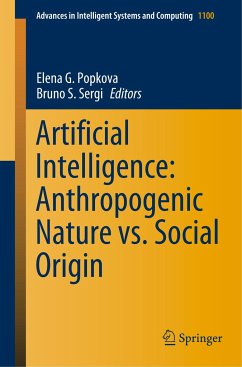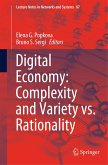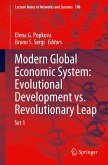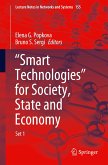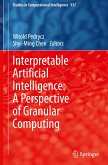This book presents advanced research studies on the topic of artificial intelligence as a component of social and economic relations and processes. It gathers research papers from the International Research-to-Practice Conference "The 21st Century from the Positions of Modern Science: Intellectual, Digital and Innovative Aspects" (May 23-24, 2019, Nizhny Novgorod, Russia) and the International Research-to-Practice Conference "Economics of Pleasure: a Science of Enjoying Economic Activities" (October 3-5, 2019, Prague, Czech Republic). Both conferences were organized by the Autonomous Non-Profit Organization "Institute of Scientific Communications" (Volgograd).
What sets this book apart from other publications on the topic of artificial intelligence is that it approaches AI not as a technological tool, but as an economic entity. Bringing together papers by representatives of various fields of social and human knowledge, it systematically reflects on various economic, social, and legal aspects of the creation, application, and development of artificial intelligence. Given the multidisciplinary nature of its content, the book will appeal to a broad target audience, including those engaged in developing AI (scientific research institutes and universities), and Industry 4.0 enterprises interested in its implementation, as well as state regulators for the digital economy.
What sets this book apart from other publications on the topic of artificial intelligence is that it approaches AI not as a technological tool, but as an economic entity. Bringing together papers by representatives of various fields of social and human knowledge, it systematically reflects on various economic, social, and legal aspects of the creation, application, and development of artificial intelligence. Given the multidisciplinary nature of its content, the book will appeal to a broad target audience, including those engaged in developing AI (scientific research institutes and universities), and Industry 4.0 enterprises interested in its implementation, as well as state regulators for the digital economy.

